Normal Elementary Phonics Worksheets for Ages 3-9
14 filtered results
-
From - To
Explore our engaging Normal Elementary Phonics Worksheets for children ages 3-9! These carefully designed printable resources help young learners develop essential phonics skills, laying the foundation for reading and writing. Each worksheet combines fun activities and colorful illustrations to captivate early readers and reinforce letter sounds, word formation, and pronunciation. Perfect for parents and teachers alike, our phonics worksheets are aligned with educational standards, making learning enjoyable and effective. Whether at home or in the classroom, these resources support phonemic awareness and boost literacy skills, setting your child on a path to reading success. Download and start learning today!
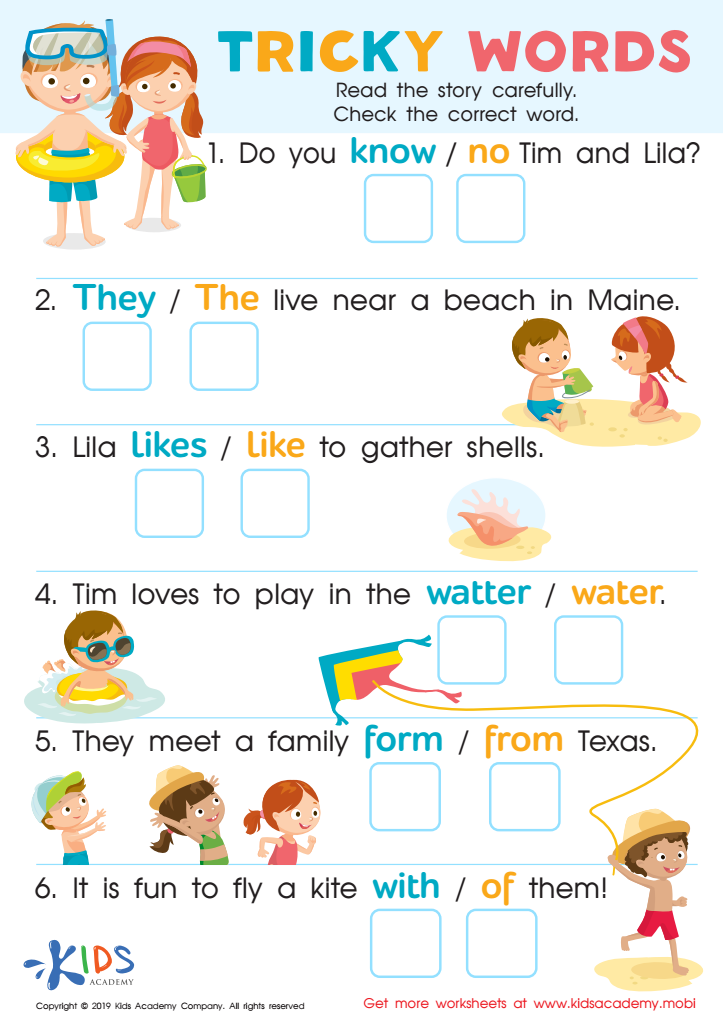

Tricky Words Worksheet


Phonological Awareness: Assessment 1 Worksheet


Phonics and Word Recognition: Assessment 1 Worksheet
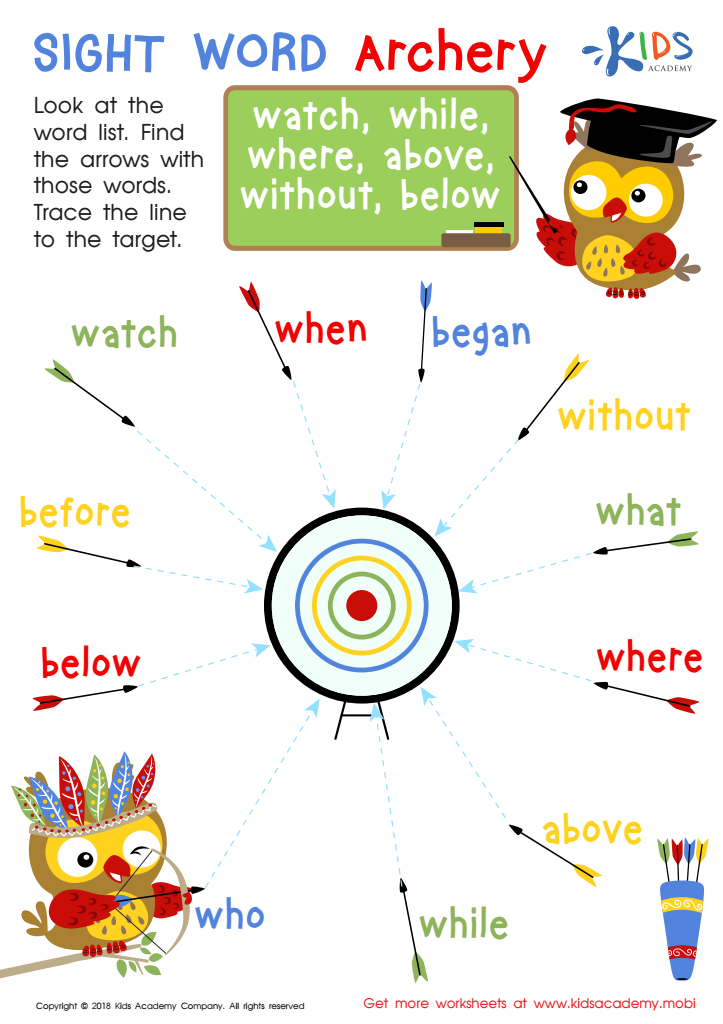

Sight Word Archery Worksheet
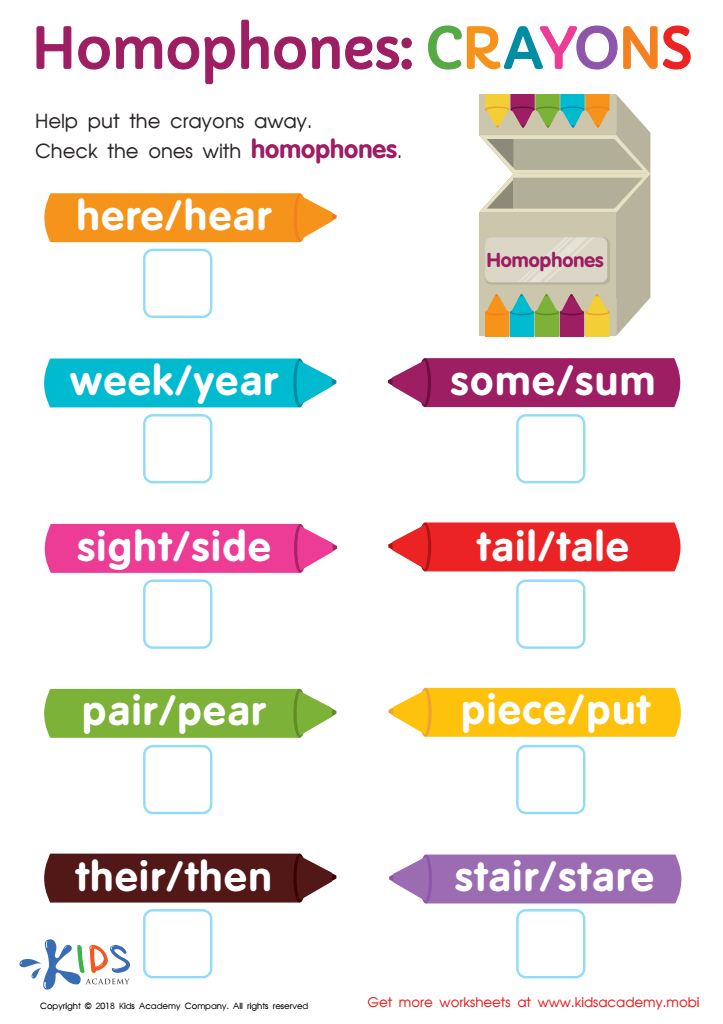

Homophones: Crayons Worksheet
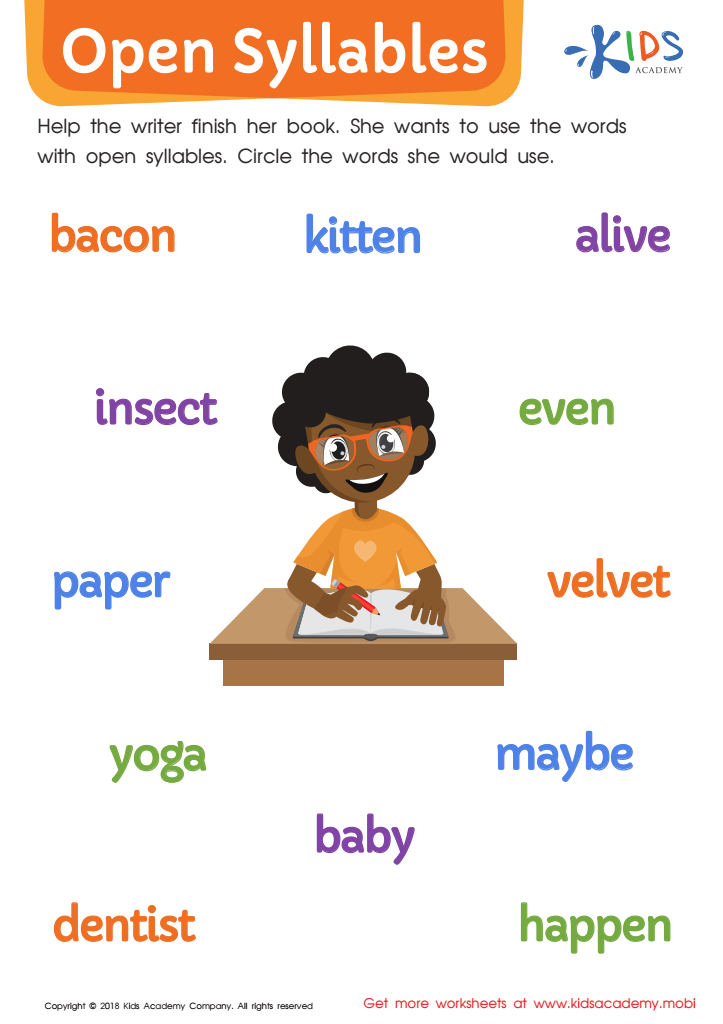

Open Syllables Worksheet
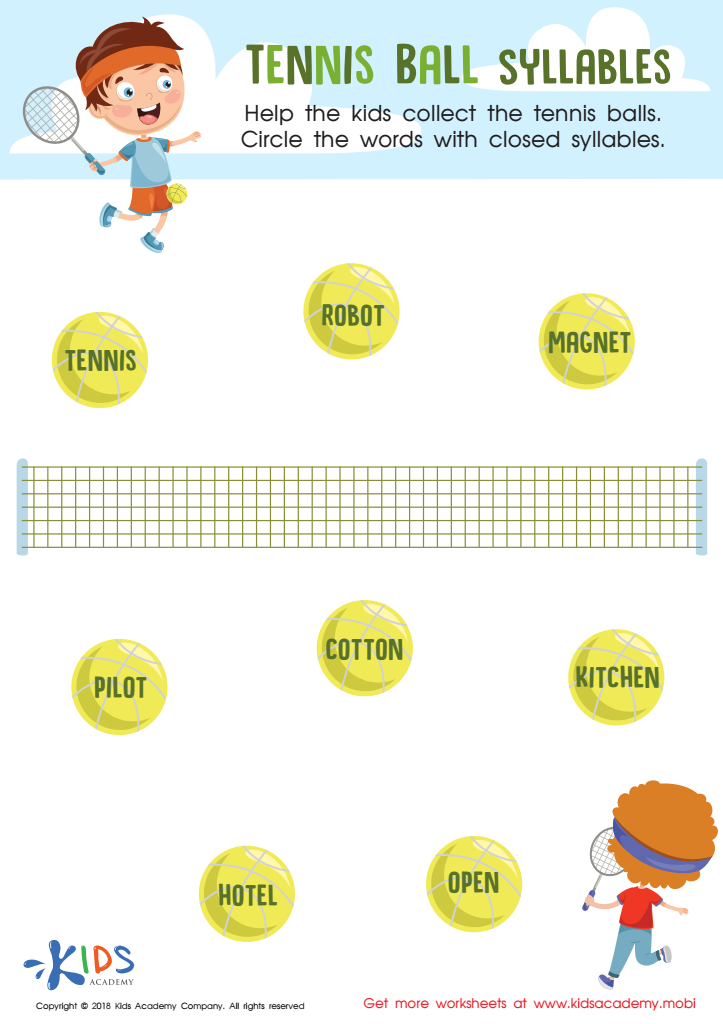

Tennis Ball Syllables Worksheet
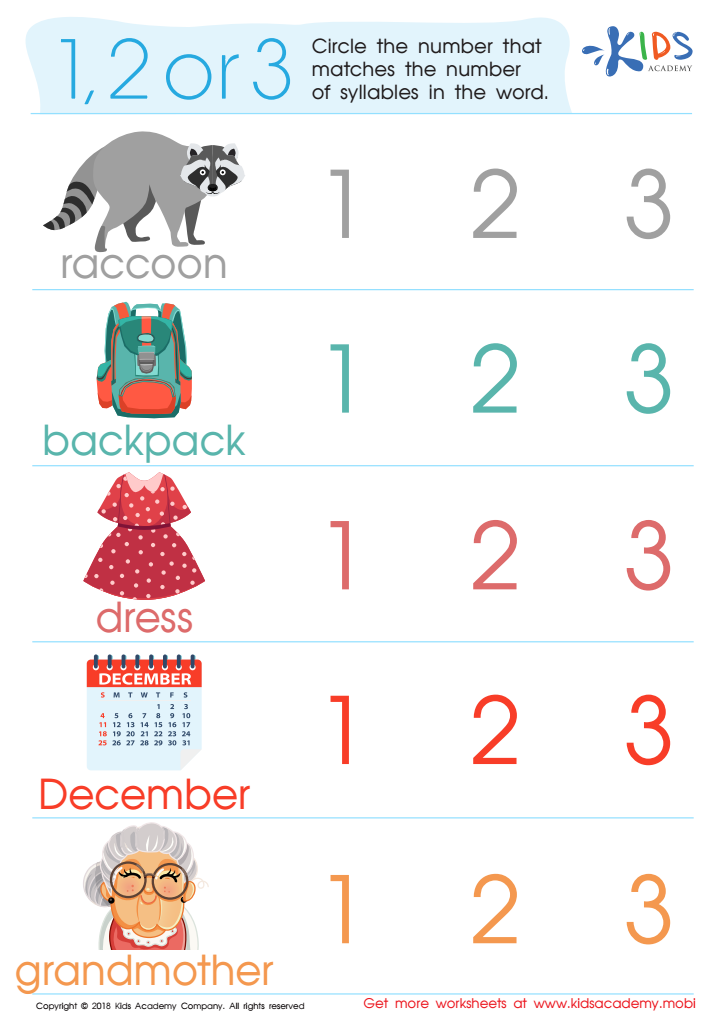

1, 2 or 3? Worksheet
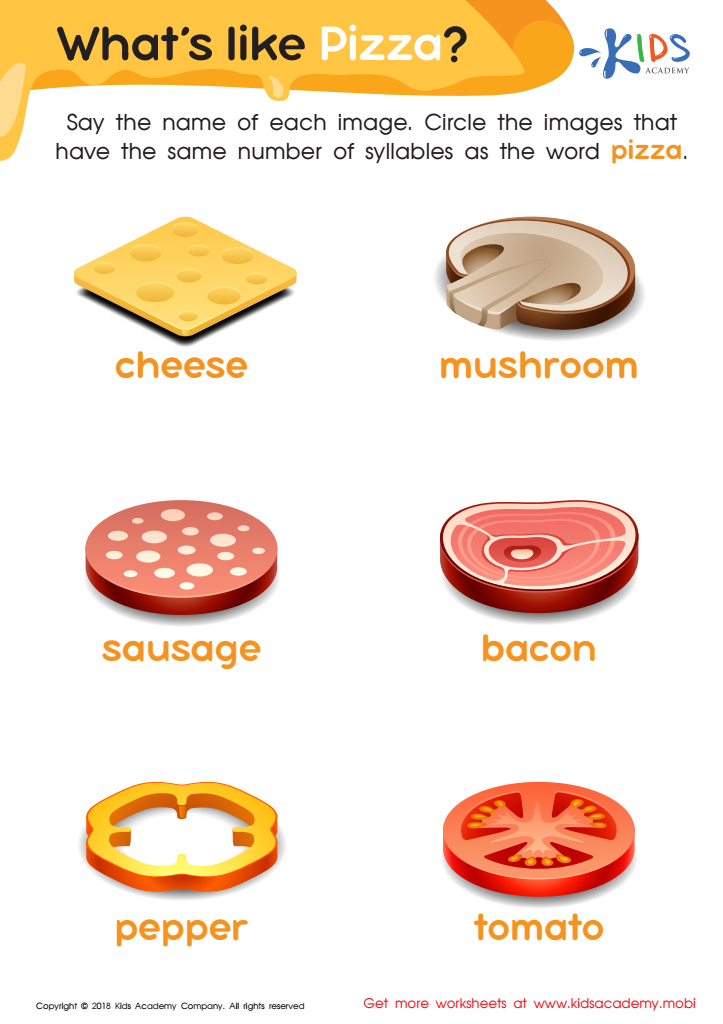

What's Like Pizza? Worksheet
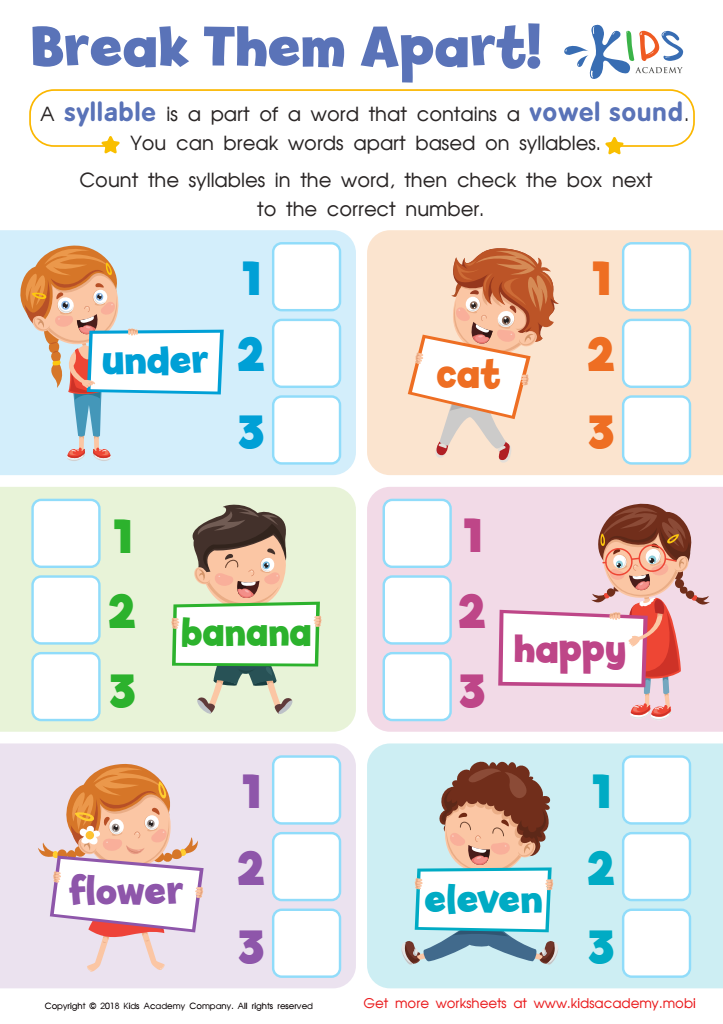

Reading: Break Them Apart Worksheet
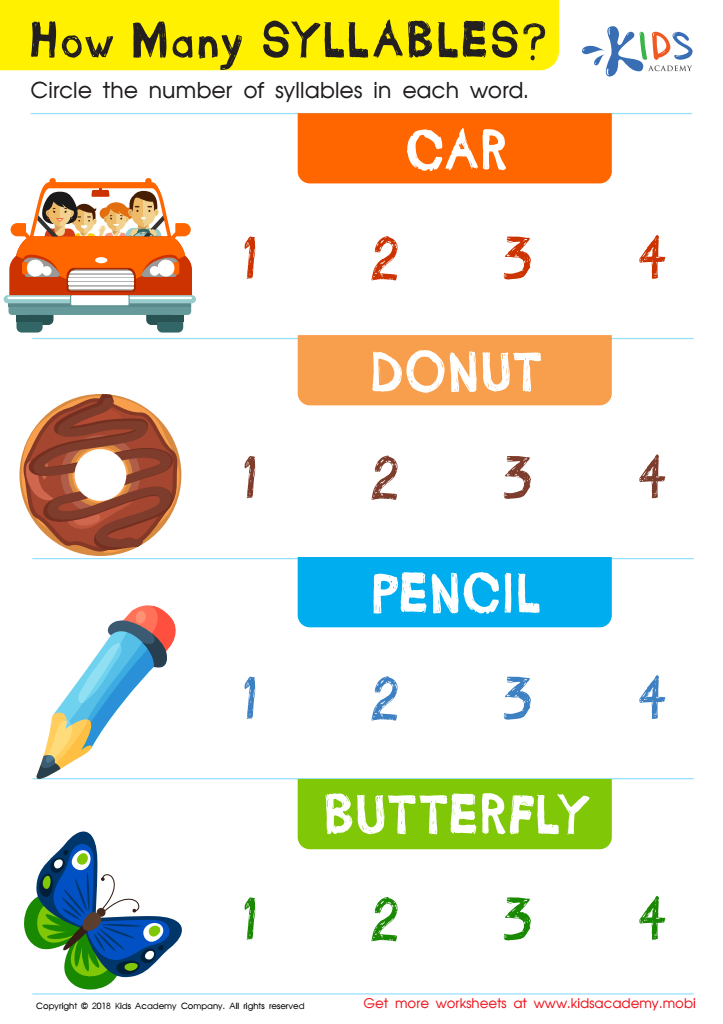

How Many Syllables? Worksheet
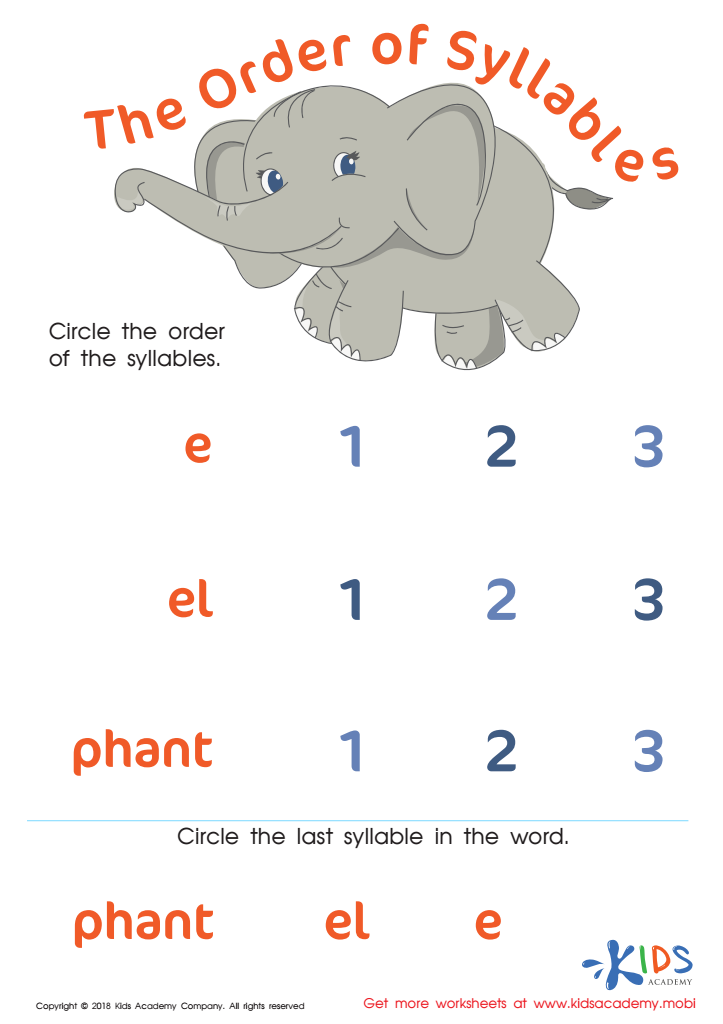

The Order of Syllables Worksheet
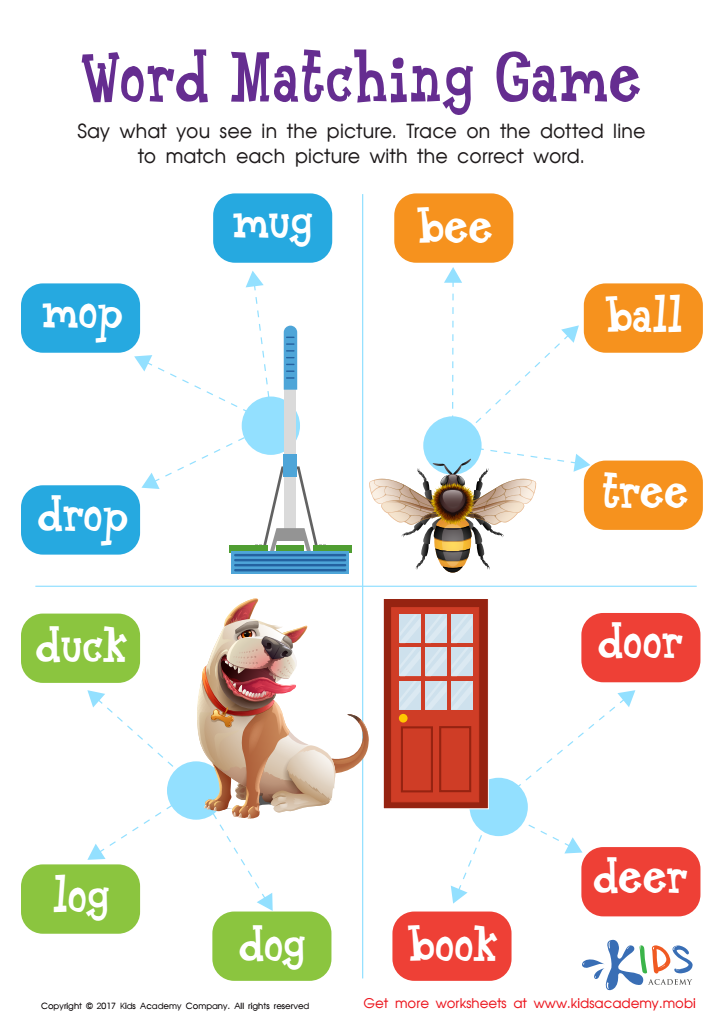

Word Matching Game Worksheet
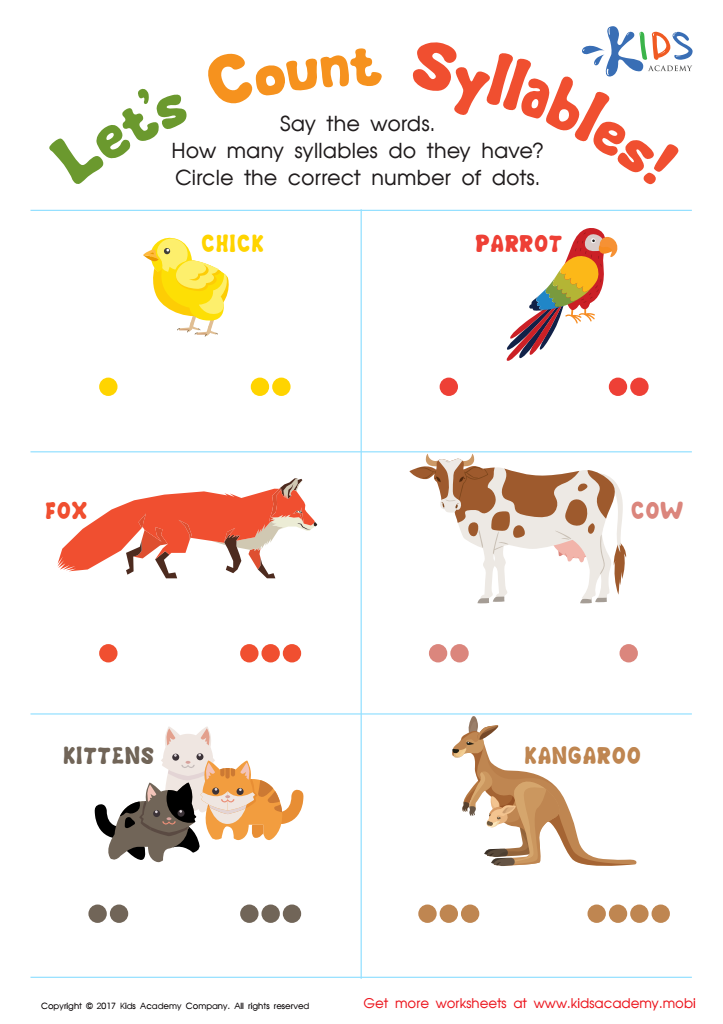

Lets Count Syllables Worksheet
Parents and teachers should prioritize Normal Elementary Phonics for children ages 3-9 as it lays the foundation for essential literacy skills. Phonics instruction teaches young learners the relationship between sounds and letters, which is crucial for reading and spelling. At this age, children are in a critical developmental stage, where they acquire language and literacy efficiently.
By focusing on phonics, educators can help children develop decoding skills that aid in reading fluency and comprehension. Early mastery of these skills can prevent future reading difficulties, promoting a lifelong love for reading. Furthermore, strong reading skills correlate with overall academic success across subjects.
Normal Elementary Phonics also supports diverse learning styles through engaging, hands-on activities. This approach ensures that every child, regardless of their learning preference, can interact with the material effectively. Additionally, it encourages parental involvement, creating opportunities for families to engage in their child's literacy journey, strengthening the home-school connection.
Ultimately, investing time and effort into phonics education equips children with the tools they need to succeed in school and beyond, fostering confident, capable readers ready to tackle the challenges of their academic careers.
 Assign to My Students
Assign to My Students









